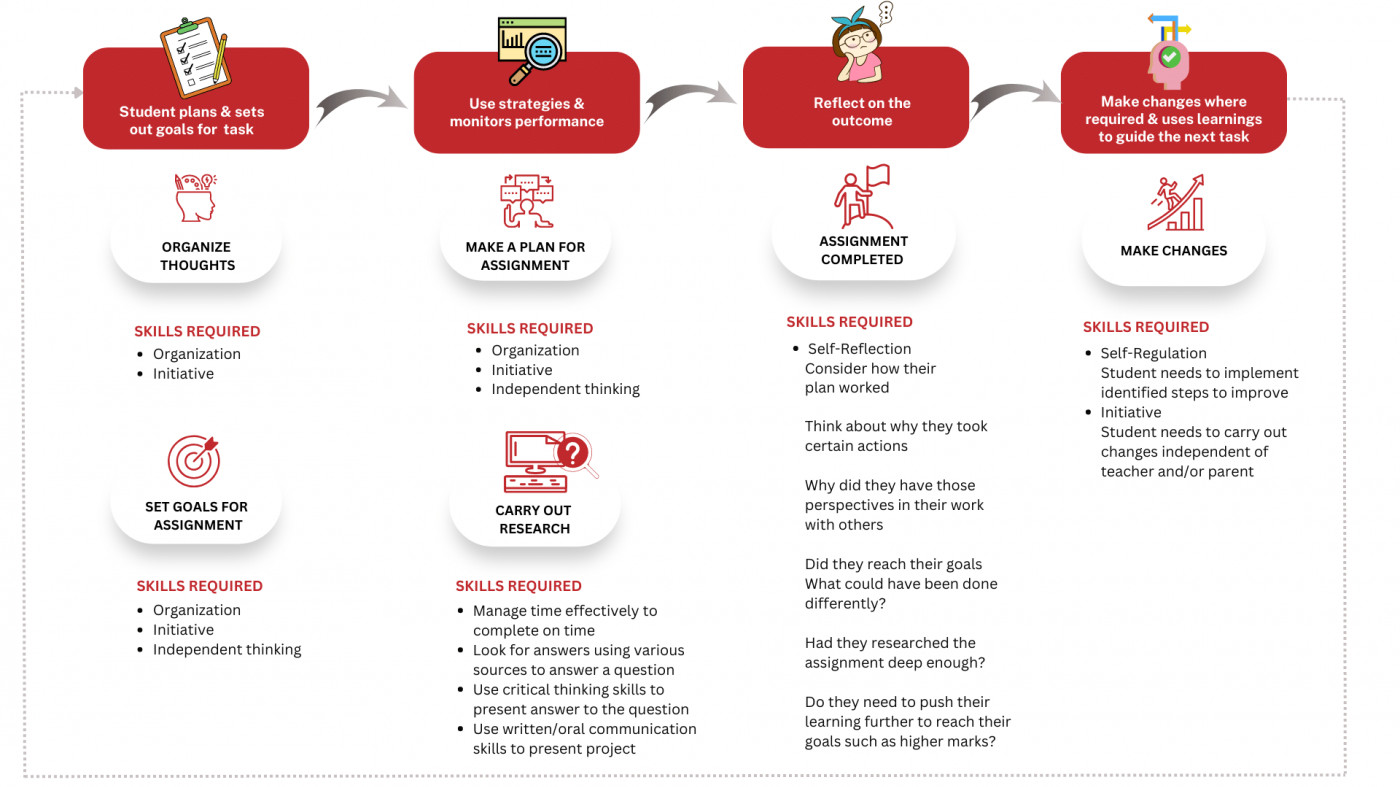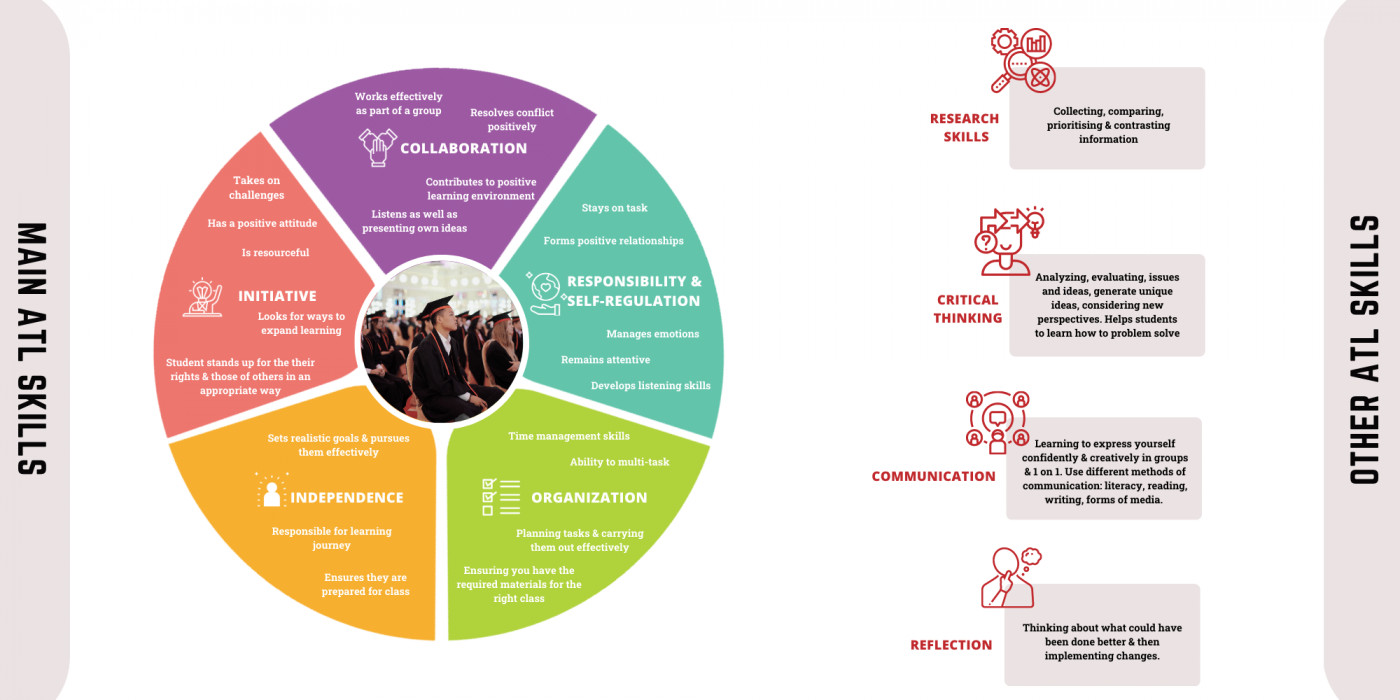
What are Approaches to Learning Skills and why are they important?
In this series, we will delve deep into Approaches to Learning skills (ATLs). By utilising ATLs, students are given a unique chance to learn and grow both cognitively, emotionally & behaviourally. This educational approach helps them to truly understand the material by engaging their thoughts, experiences & senses; giving each student a completely tailored learning experience.
TIS educators believe that everyone should have an equal opportunity to learn and grow, so they take a holistic approach to education. By exploring different pathways, they’re able to reach students of all levels and help them achieve success. This inclusive approach provides students with the tools they need to build their understanding in their own preferred way.
The Benefits of Approaches to Learning Skills (ATL) in the Classroom
What are ATLs?
ATL skills are important learning tools that can benefit students during their educational journey as well as in their lives beyond the classroom. In essence, ATLs are a set of practical strategies, skills and attitudes used by leading education programmes such as the International Baccalaureate Programme and teachers worldwide that support the idea that a significant influence on a student's education is not only what you learn, but how you learn.
Think about a number of essential skills that people need to use these days:
Self Management skills (organization, self-motivation, resilience, mindfulness)
Thinking skills (problem-solving, critical thinking, creative thinking, reflection)
Communication skills (oral and written)
Research skills (locating, appraising and extracting information from relevant sources, synthesizing information)
Media literacy skills (using technological applications and tools to streamline research)
These are skills everyone needs to develop, to be ready for the future. Remember the old saying, if you give a person a fish, you feed them for a day. But if you teach a person how to fish, you feed them for a lifetime. It's the same idea with ATL skills. They are designed to provide a deeper conceptual understanding of subjects and foster the development of skills like communication, research, and, most importantly, self-management.
But how does this translate into school and learning crucial subject information?
By becoming proficient in ATL skills, students become masters of their own learning or, in teacher speak, self-regulated learners.
For example, the teacher sets an assignment with a due date. To answer the assignment's questions effectively, a student must carry out the following:

These strategies help students develop a structured pathway and drive better student outcomes, helping students to learn subject matter more effectively and improving overall student performance no matter what that subject is.
As an International School, we aim to help each child succeed and to provide a fulfilling learning environment. ATLs assist students in reaching their full potential no matter their learning level.
Students are learning subject matter at school and also how to apply various skills to better understand & deepen subject knowledge. Websites such as LinkedIn and TopResume can provide great insight into what employers are looking for - and all of our ATLs are listed there.
By helping our students learn these skills, they can become much better learners, preparing them for their future at University and beyond.
Which ATL skills have we been prioritising at TIS?
Teaching ATLs requires an intentional approach and well-designed learning activities that assist students in improving in these key skill areas. The goal is to develop a skill level of excellence at an age-appropriate level as each year progresses. The following shows you which ATLs TIS has been prioritising as areas of focus.

Each ATL will play a different level of prominence in each subject area and may look different from subject to subject. For example, communication skills will look different in Mathematics than in Social Studies or Chinese Language classes. However, every subject will require adequate development of all of the ATLs described above if the student is to experience success.
What benefits do ATLs provide?
Helps students effectively enhance their own learning process, thus reaching their full potential
Even though each student will take a different learning pathway, the ATLs help students understand that specific skills will help them become more efficient learners no matter the subject. Therefore, they are "learning how to learn."
Students are encouraged to think about which ATL skills apply to each subject and how to use them effectively to enhance their learning process. Students also learn which ATL skills work better in independent or group learning environments. By developing and using these tools (ATLs), students build more profound subject-specific knowledge and develop learning behaviours that can be applied across different subjects.

Creates Learning Pathways
ATLs help educators create learning pathways that benefit students with different learning styles and needs. For example, some students may need help or their thoughts clearly or preparing themselves adequately to take on a specific task. By embedding ATLs into the classroom teaching method, the ATLs can assist teachers and students in working together to create self-regulated and independent learners and to improve on areas that a student is struggling with.
Upcoming Article: Looking at ATLs across different subjects.



